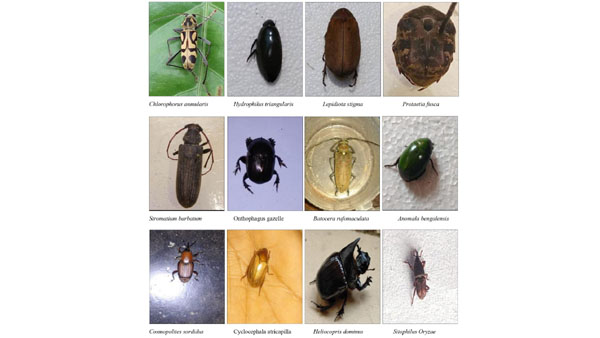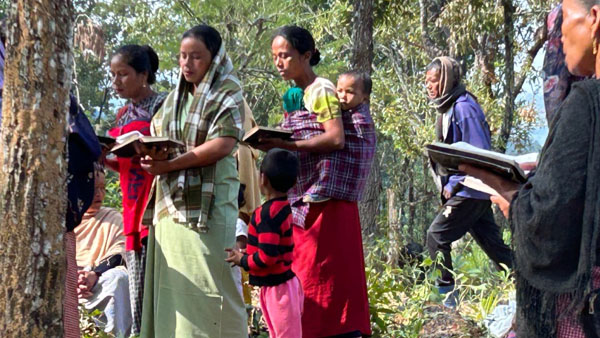Guwahati, Nov 13 : Ri Bhoi district, a region with rich bio-diversity, has been found to host an unexpected number of beetle species, according to a new study.
Conducted between April 2024 and August 2025, the survey recorded 71 beetle species across 59 genera and nine families, marking one of the most detailed assessments of Coleoptera ever undertaken in the district.
The research was carried out by Golphina Ahmed from the Department of Zoology, Girijananda Chowdhury University, Assam; Mridusmita Mahanta from Sipajhar College, Assam; and Aditya Das from the University of Science and Technology Meghalaya (USTM).
The study found that the Scarabaeidae family (dung beetles) accounted for the highest proportion of species—31%—followed by ground beetles (Carabidae). These insects are not mere forest dwellers; they are ecosystem engineers.
Dung beetles improve nutrient cycling, soil aeration and decomposition, while predatory beetles like Coccinella undecimpunctata and Brumoides suturalis naturally suppress pests that damage crops. Several recorded species also help control mealybugs, aphids and stored grain pests, highlighting their importance to farming communities in Ri Bhoi.
The researchers noted significant contrasts across habitats: forested and agricultural areas supported the highest beetle diversity, while urban and disturbed zones hosted fewer species. The presence of aquatic beetle families such as Dytiscidae and Hydrophilidae also points to healthy freshwater pockets—strong indicators of environmental quality.
The authors emphasize that this dataset is crucial for Meghalaya, especially as regions like Ri Bhoi experience deforestation, land conversion and infrastructure expansion. Beetles are widely used as bioindicators worldwide, and this checklist now serves as a baseline to track how future ecological changes affect biodiversity in the district.
“Given how little we know about insect diversity in Meghalaya, especially Coleoptera, this study fills a major knowledge gap,” the researchers note in their paper.
Beetles—among the world’s most diverse animal groups—play fundamental roles in soil nutrient cycling, natural pest regulation, decomposition of organic matter, maintaining freshwater ecosystem health and supporting forest regeneration.
The new checklist underscores that Ri Bhoi’s subtropical ecosystems support an impressive range of microhabitats, enabling both terrestrial and aquatic beetle species to thrive.
The researchers from GCU Assam, Sipajhar College and USTM recommend expanding the work using seasonal surveys, long-term ecological monitoring, molecular tools for better species identification, GIS mapping of habitat distribution. Such efforts, they argue, will help Meghalaya better track climate-linked changes and guide conservation planning.




